Those who are familiar with Darjeeling agree to one thing, we have the coolest lingo anywhere in the world. It’s not just our slangs that are unique, but also our expressions, sayings, proverbs and host of other peculiarly weird language which distinguishes any Darjeelingey (which includes all of the Darjeeling region and not just Darjeeling town) from those who are not from here.
“Aanta Bro?” is perhaps one of the most common expressions in the Nepali world, but “Aanta paat?” is typical Darjeeling lingo. A long-long time ago, someone must have thought, “if ‘bro’ can be short for brother, why not ‘paat’ for partner?” Other Darjeeling variants include “Aanta som? – short for Sombey,” or “Aanta bada?” and a childhood friend of mine Hameed used to greet us with “Aanta Kaka?” even.
The best thing about these expressions is that they are both a greeting and a question. “Aanta Pat?” is invariably followed by “…k cha hau hana?” and the response comes “chaldai cha som…” In less than 15 seconds you greeted someone, asked about his/her well being, and even got an answer.
How cool is that?
Those more sophisticated ones don’t use the term “Aanta” instead they go the English way and greet – often with one of their hands raised – “Yes Bro?” or if someone is older “Yes Daa/Di?” or if someone is younger “Yes Bhai/Baini?” for which standard response is “Yes bro” or “Yes bhai,” or “Yes Daa.”
I have always wondered where that ‘Yes’ part came from? any idea folks?
Then we use different words differently to emphasize on various emotions. Only in Darjeeling it is possible to describe the speed of a person walking or running. While “bistaree ghumdai jum la,” indicates a leisurely walk, “tyo ta kyaaaaa bistaaareee hirdai aako nee… kachuwa lai compete garney speed ma” would indicated someone who literally dragged his/her feet so slowly that a tortoise could compete with him/her and perhaps win.
While “kuddai aako” means that person hurried to get here, “Khururururu kuddai aako nee” indicates that the person ran to get here, and if someone says “Chatee jhandai parkiney garee kuddai aako nee” be sympathetic, that person nearly died running, to be with you.
Someone could be in a rush, thus all of us are familiar with the “gadee ma chadyera dhuiyyyeeyaannn goideko” scenes.
I guess Darjeeling is the only place in the world, where you can make things come alive with sounds during a normal course of conversation. A typical fight scene could be described as, “Amamama Dhaney lai Maney le Chyak-ki-Chyaak deko nee” that ‘chyak-ki-chyaak’ provides the much needed sound effect, which makes our conversations come alive. Someone could go, “Hiju Baba le dyam-ki-dyam deko nee” which means that his dad treated him like a drum last night.
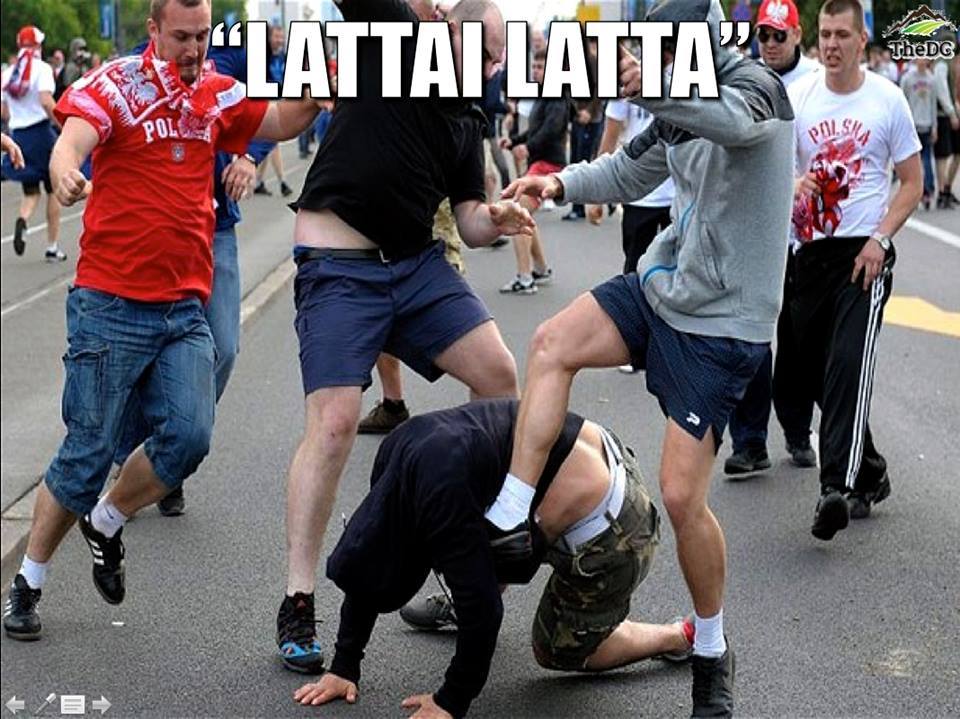
Our vocab also allows us to describe the degree/severity of an incident, for instance if someone is describing a fight, he could go, “Rane le ek laat khako nee…” which means Rane got a kick, and if someone said “Rane le lattai-laata-le khako nee,” it will translate to – Rane was treated like a football.
Only in Darjeeling, statement like “chyappai pakryera, thyam-ki-thyam diyera, finni-ni-ni ghumin jel banako” would make absolutely perfect sense. Elsewhere people would be like – What?
Or better yet try this, “Pliittaaiii chiplyera… Daangai lardera aafu chai Syaaalyyaakkaaiiii bhai rako bela ma… ramree baini le… naramro beura dekhaudai battissee (32 teeth) dekhayera hasyeko zindagee ma birsindinaa”
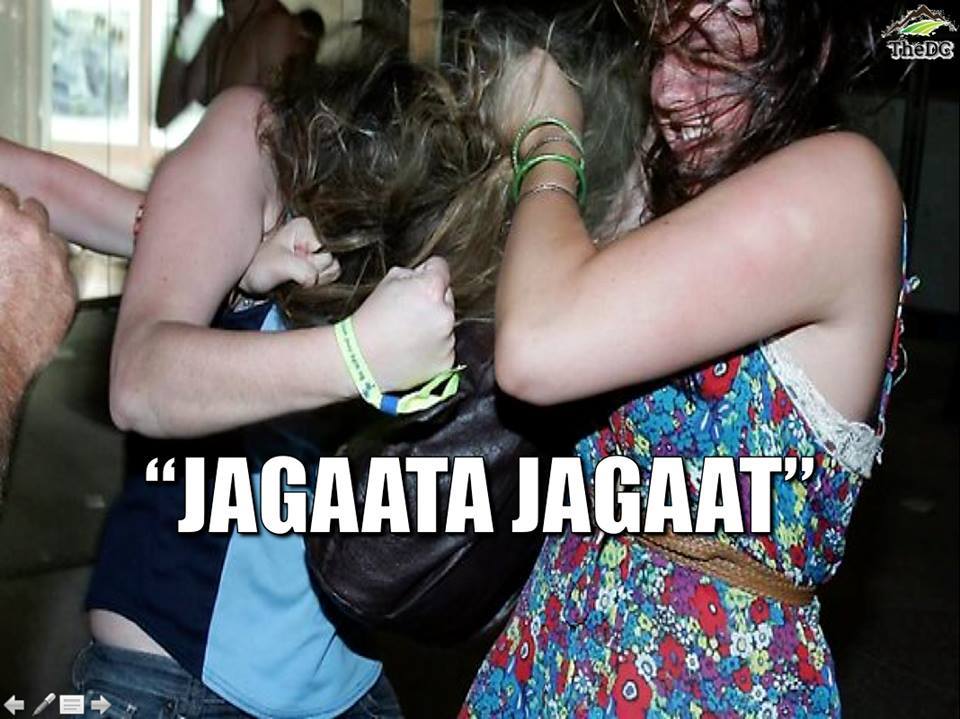
Then we have expressions, which are funnier than some of the best punch lines comics use.
In Darjeeling guys don’t flirt with girls, they flirt with “season”… rest of the world may have beautiful girls, we have ‘Cchhhwwwaaannnkkkkk keti haru’.. when someone gets lucky and a lady reciprocates his attempts at flirting, his friends go, “Aammbooo bro gajjaakkaiii bhako hyer na… tyesko season hundai cha nee…” and while most of the Darjeeling girls are ‘bolnu panee dar-lagney’ some bainis are like… “Tara (star) k chamkincha… baini chamkideko nee” kinds.
Much like ‘chwank’… I guess ‘hebbbyyyy’ is another Darjeeling gem… no it does not refer to weight – thank you. This word is so versatile in its use, it can be used to describe anything…. while ‘dui jana ko hebbbyyyy fight bhai deko nee’ would indicate a bitter fjght between the two, ‘bro le feri dhantnu payo bhandai ma heeebbyyyyy jotee deko nee’ would indicate an outright liar…. the phrase ‘Tyo picture hebbyyy thyo nee’ could indicate an awesome movie, while the statement ‘dui jana ko hebbyyyy discuss bhako nee” indicates a well rounded debate between the two.
During the 1986 andolan days we used to put our hands through the right side of our head/hair and say, “Ama panee chaina”… through the left side and say, “Bau panee chaina”…. pull the hair in the middle forward and go “Syaacrriiii.” The word ‘Syaacrriiii’ is derived from the word Sacrifice which a lot of brave young men and women made for the state of Gorkhaland. So the phrase, “Ama panee chaina… Bau panee chaina… Syaacrriiii” was meant to indicate the fact that one was ready and willing to sacrifice everything… someone who had nothing to lose.
Later that became modified and people started to say, “yo keta ta Syaacreee cha nee” to indicate if someone was brave or brazen, or both… much later we started to say, “Syacri bau ko Syackri chora”… to indicate someone who was fearless and had b**ls… by the time 1990s arrived the expression had changed to, “Syacri bau ko Jhyakri Chora” in typical Darjeeling style and much like everything else something cool “Syaccrriiii” had invariably gone on to become a joke.
Talking about expressions, after a fight I missed, a friend explained, “Tashi lai Pemba le roti sekako jasto sekayo ni” which is a polite way of saying, how well Tashi got cooked (beaten up) by Pemba.
The famous Nepali expression “Umrindai tinpatey” which was used to indicate an over-smart kid, has evolved in Darjeeling, now people have started to say “umrindai jhyang nah u ta” as these days, in Darjeeling, apparently everyone is “umrindai tin patey” to begin with.
If someone took a shower after a long winter, his friends are heard complimenting him with, “Aju kina ghaam lagyecha bhaneko ta….”
Forced by my parents, every once in a while when I had to wear piece (cotton) pants and shirt, my friends would ask, “oie kosko biha ma goyera aako, byaanai?”
Then came the big one… “Laau laau Buddha…” This is one phrase which took Darjeeling by storm, wayyyyyy before “Senteram” happened, “Laau laau Buddha…” had been.
This phrase was so pervasive that it had taken over all of our lives… let me tell you a short story about how pervaise and I swear to God that I am not making this up… so one day I was walking towards town, when I saw this guy who had recently come from Bihar walking with a kid who happened to be his relative ko chora… the kid who was then around 6 years old had grown up in Darjeeling in front of our eyes and he was like any other kid from our locality – a Darjeelingley… but his relative he was walking with had just arrived from Bihar… so they were both walking in front of me on the railway tracks, and the kid started to run as he saw his mother at a distance, his relative scolded him and said something to the tune of “you will get the beating of your life if you don’t stop running right now,” the kid stops running turns around, and cool as an iceberg says “Lau Lau Buddha” and starts running again. This dude from Bihar didn’t know what hit him, but I was literally rolling on the floor laughing my A** off…
“Lau lau Buddha” went on to become a long series with, “Lau lau Buddha… Tamanna le fyaataai fyaataai… Jal jeera le jirring jirring… Paan Parag le Pararara… Center Fresh le Siriri…” and on and on it went. One day when I pointed out my girlfriend’s mistake she goes, “Lau lau Buddha”. .. pissed off, but with my sense of humor intact, I had to remind her… “Oie aafnai kaka ko naam katchass?” Funnily enough her kaka ko naam is Buddha.
Have you guys noticed how we never give a straight answer to a question?
My friend was eating food, and someone asked him ‘Bhaat khako?’ and without even batting an eyelid he goes, ‘haina daant ko excercise gareko.”
While we were putting away our wet umbrella, ek jana uncle asked, “bahira panee pordai cha?” and my friend promptly answers, “haina… Chata lai boring bha harye… swimming garai kina lyaako.”
So we were at Inox once when we met an old acquaintance, we were already late for the movie and were in a rush to enter the hall, and she goes, “picture hernu aako?” and my younger brother replies, “Hajur haina… Puja garnu”… not sure what she made of it, but she sure must have been confused.
And then I heard of these two budo bajey from near our village, they were damn funny. Both would try and out-do the other, one would ask: “Kaa gako? Bazar?” and the other would answer, “Haina, Bazar gaako,” not to be outdone the first one would go… “Aaa mo tah bazaar po gako hola bhaenko ta…” and feigning outrage the second one goes “Thet!! Bazar naa goyera… tyaa po jai basnu hola?”
Where else would you find folks with such sense of humor?
I think of all the expressions, the ones relating to various stages of intoxication are the best. Each expression not only relates to the degree of intoxication, but also the type of intoxication derived from different stuffs as well.
Someone could be “Twaanntt” after drinking three pegs of rum… or “JJhhyyaapp” after five… but if he is “Lllyyyaaapppyyaaxxx” it means he cannot even get up to go to the bed, and if someone is “Sentiffflllyyyaaatttttttt” then that person has attained alcoholic nirvana.
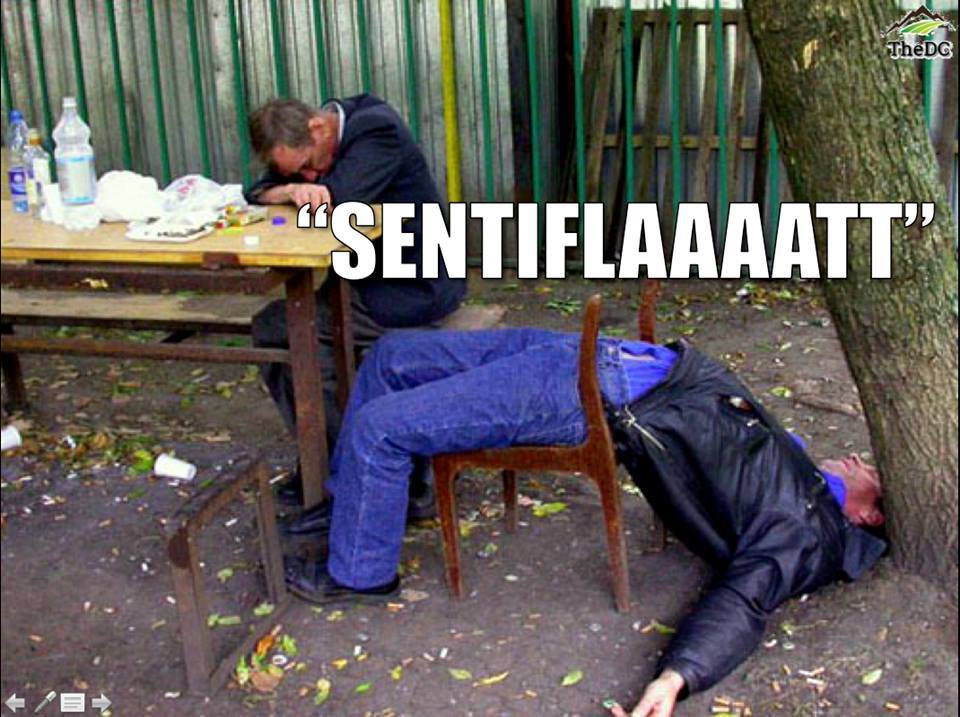
Some smoke pot and become “Mastaaaa”… while some others take tabs (tablets) and become “Dim-Dim” or inhale dendu (dendrite) to become “Haaan Haaan – हँ हँ”… a few self-taught compounders take injections to and go “Trippppp maaa”…
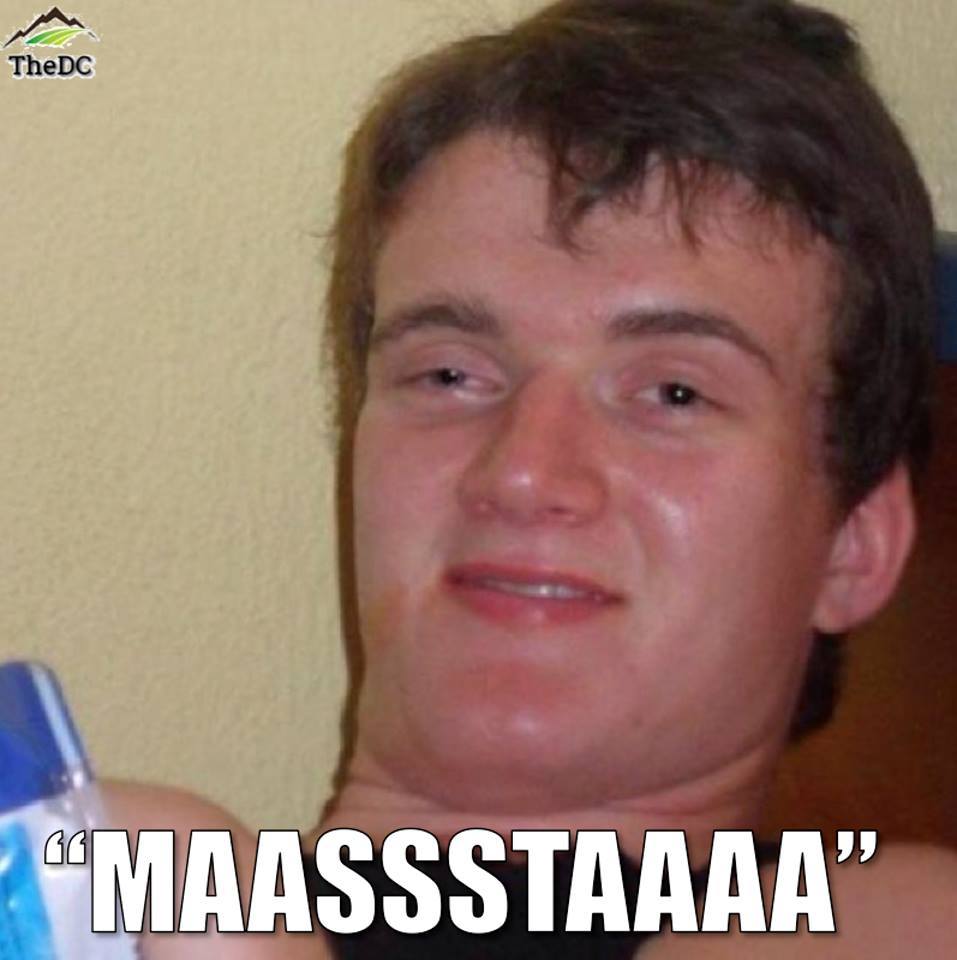
Where else would one find humor to get over social evil? Through our rough times, it is our humor which keeps us going.
Broken relationships do create awkward situations at times, but our vocab comes to rescue… one person was heard introducing his son’s ex-Girlfirends’s father as – “waha chai mero hunu na sakeko samdhee” at Keventer’s once.
Older folks don’t care, they are as blunt as they can be, an older relative of mine once asked my girl friend, “timarko chai dosti lagyeko ho?” back in the day there was no girlfriend-boyfriend business, folks would go “dosti lagaunu” with each other.
Then came the “Gyaasss” era… “Uu para herons taa… ayeta aundai chaa nee… hareeyo kurta laagaune … ho uuu chai hamro Ramesh ko Gyass ho” is how a friend of mine had once pointed out our friend’s girlfriend to his elder brother.
I find that most of our everyday threats are hilarious, here are some samples
The most well recognized of the lot must be, “Kaath ko po hola?” if someone said this better watch out…he is definitely not made of wood. This expression much like everything else has multiple uses though, if someone achieved something remarkable or achieved something, modestly he could look to his friends and go, “Kaath ko po hola?”
“Luga dhuko jasto dhunu na paros hai….” no you don’t want to be washed, do you?
Then there is this guy who once said to me, “Rang udney garyera laat khanchass hai…” he literally threatened to kick me so hard that I’d be rid of my skin colour.
A legend from our village, Raju Daa would say, ‘Bhai… height bhanda besi chai naa boli haal naa feri..” if someone started to tell tall tales.
Another popular one in Darjeeling is, “nyaak ra jhyaak parnu na paros hai…” it leaves you both shaken and stirred, trust me, I have had that happen to me a lot of times when young.
The best I ever heard though was by a lady telling this other lady, “Aailey tero jagata ukhalyera Amrish Puri banai dinchu ra po ta…”
That was nastily the funniest dhamkee I have ever heard…
But hands down when it comes to naming people, there is no parallel to Darjeeling. Most of the pet names by which people are known arises from our inherent ability at satire and sarcasm, and our unique ability to laugh at oneself.
While in other parts of India art and artists may be honoured, in Darjeeling even they are not spared, a kid in our neighbourhood once danced to the tune of the song “Ruk-Ruk-Ruk… Arey Baba Ruk…” and till today we refer to her as “Ruk-Ruk Pratima,”… then there was this dude called “Action Benoy” who, it is said, used to talk so animatedly – and with such action – that when he sat down to poop, and got up, even his gu would read – “Benoy!!”
Someone who is dark has to face the wakkai lagdo “din mein raat… raat mein daant” joke or is called “Dhwanse”… Believe it or not we even had a guy who was popularly called “Ata Suraj” in our class as he was so fair.
In some parts of Darjeeling, we end up having lots of people with the same name, so we use different adjectives to identify who is who. I think it was in Ghoom or Jorebunglow, where I once visited, and there were multiple Dawa’s and they were known as – Syanu Dawa, Thulo Dawa, Pappu Dawa, Little Dawa, Chadke Dawa, Kaley Dawa, Appa Dawa, Mithun Dawa, Dawa Tashi, Bhim Dawa and 26 Dawa… Curious I happened to ask, why 26 Dawa? And my friend explained that he drove this landrover WGY 3826 or some such number which is why he was known as 26 Dawa.
Ingenious I say!!
The latest round of funnies doing the round in Darjeeling includes this brilliant gem…. After seeing a dude take shower after a month, hamro gaun ko bhai says, “Hana WHO Cares? ko le bhetyo k ho? Nuwai diyeca taa?”
Hahaha… Birlliant!!
No matter what people say, Darjeeling and Darjeelingey’s do have a wicked sense of humor, and may be the fact that we have lots of pains and sufferings due to political stupidities, makes us more humorous and appreciative of finer things in life. May be its in our sufferings, we draw the inspiration for our music, our art, our language, and our humor.
Just like how BLUES roots can be traced back to the cotton fields of Mississippi… the amazingly unique Darjeeling lingo and sense of humor can be traced back to the blood, sweat and sufferings of our ancestors.
As I bid adieu, I cannot help but say, “Ghurra jasto ghumey panee… sara sansar dekhye panee… no place can even come close to being… my darling… my Darjeeling”
Jai Gorkhaland!!
[Memes: Sherab Rabzyor Yolmo]

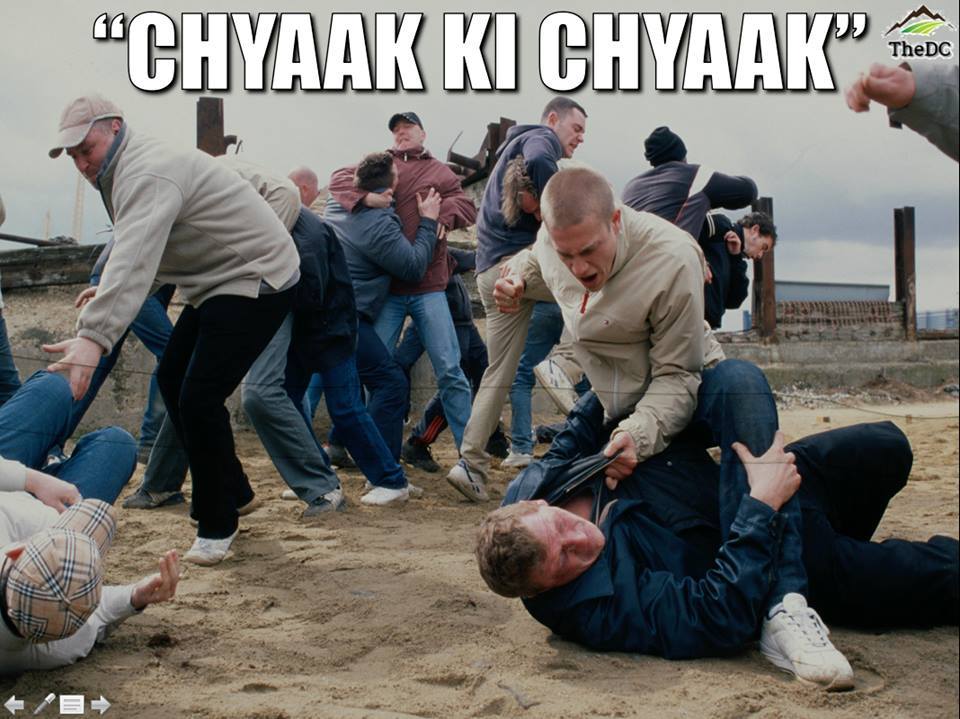


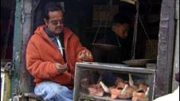
Leave a comment